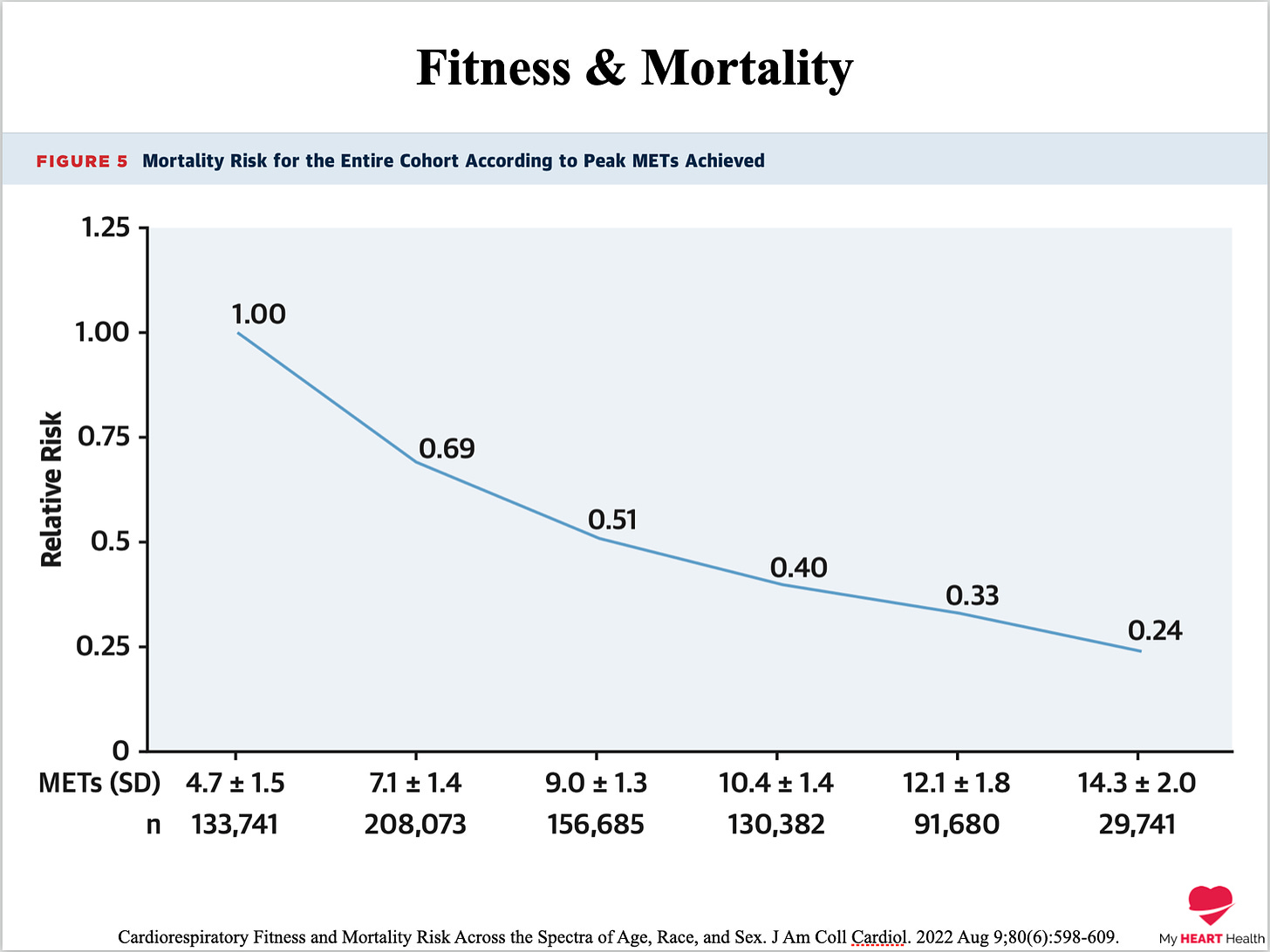The Dangers Of 'Everything In Moderation'.

“The only thing I do in moderation is moderation.”
Unnamed Orthopaedic Surgeon.
My colleague may have been paraphrasing Oscar Wilde, but he might have had a point.
Everything in moderation is a trope we have all heard and probably used when referring to actions in life, most often related to health.
And there is no doubt that going to extremes in some health-related activities is not always necessary. In general, most of the benefits are accrued from going from the very bottom rung to mid-way.
Take exercise, for example.
While those with the highest levels of fitness typically live the longest, it is going from the point of no exercise to some exercise that likely drives the biggest magnitude of change1.

Getting off zero usually has the biggest bang for buck.
It does not mean that doing only ‘some’ exercise is the best option.
It’s just the option that gives you the best return on investment with respect to time and effort. Incremental gains are likely to require increasing levels of activity.
And while the return on investment may increase, the input in terms of time and effort required to achieve those returns increases substantially. Often to the point where very few people can make that kind of investment without giving up their jobs and devoting their lives to exercise.
Also known as ‘Being A Professional Athlete’.
The definition of the word moderation is to avoid extremes or excess.
In avoiding the extremes, we would therefore land in the world of ‘average’ or the mean.
But many of today’s ‘averages’ are not exactly where you want to be.
-
The average lifespan is between 74 to 77 years of age2.
-
The average age of heart attacks is 65 years for males and 70 years of age for females.
-
More than 50% of first heart attacks happen in males less than 65 years of age, and that figure is 30% in females3.
-
The average adult BMI is in the overweight category4.
-
The average 30-year-old has evidence of some plaque in their coronary arteries5.
-
The average adult has only about a 1 in 4 chance of meeting the weekly activity recommendations6.
-
The average 70-year-old is unable to stand on one leg unassisted for ten seconds7.
I am guessing that if you are reading this, your objective is to extend the length and quality of your life.
But ask yourself.
When it comes to the health metrics that drive your cardiovascular risk and the risk of an early death, are you even hitting the metrics of ‘average’?
If you are doing what is now ‘average’, you are more likely to:
-
Die at less than 80 years of age.
-
Have your first heart attack between 65 and 70.
-
Be overweight or obese.
-
Have early plaque build up in your coronary arteries
-
Not meet weekly activity recommendations.
So if your objective is to beat the averages, you need to be doing better than average throughout your life.
I meet people on a daily basis who genuinely expect to live well into their 80s and 90s in good health but who are firmly in the realm of ‘average’ when it comes to their weight, blood pressure, cholesterol, activity, etc.
I am not suggesting that everyone needs to go to extremes with respect to their health.
As I have said before, I think the world is a far more colourful place with raucous characters in it, like Hunter S Thompson drinking chartreuse and doing lines of cocaine in a hot tub every evening.
That was his goal. It’s not mine.
But we live in a free world and are all the better for it.
But if your objective is to be above average.
In whatever metric you choose.
Settling for average with respect to the inputs that are likely to determine that outcome is not a good strategy.
Maybe moderation is what will serve you best.
But be very careful with where you draw the line between average and extreme.
Because most people could do with a little less moderation and a little bit more extreme.
Cardiorespiratory Fitness and Mortality Risk Across the Spectra of Age, Race, and Sex. J Am Coll Cardiol. 2022 Aug 9;80(6):598-609.
https://ourworldindata.org/life-expectancy
Risk of Premature Cardiovascular Disease vs the Number of Premature Cardiovascular Events. JAMA Cardiol. 2016;1(4):492-494.
http://healthsurvey.hscic.gov.uk/data-visualisation/data-visualisation/explore-the-trends/weight/adult/bmi.aspx
High prevalence of coronary atherosclerosis in asymptomatic teenagers and young adults: evidence from intravascular ultrasound. Circulation. 2001 Jun 5;103(22):2705-10.
https://www.cdc.gov/nchs/products/databriefs/db443.htm
Successful 10-second one-legged stance performance predicts survival in middle-aged and older individuals British Journal of Sports Medicine Published Online First: 21 June 2022.




